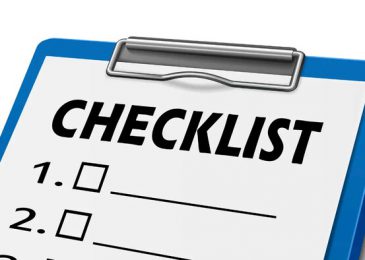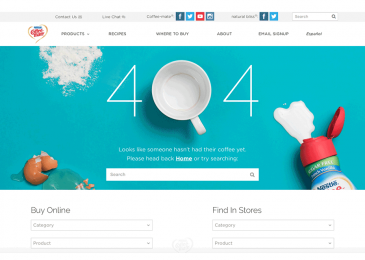Site speed is now a Google ranking factor for both desktop and mobile sites. If you don’t maintain decent website performance, your site’s visibility on Search Engine Results Pages (SERPs) may decrease, leading to lower traffic levels.
With your website’s success on the line, speed can’t be ignored. If you’re feeling overwhelmed, a smart place to start is by testing to determine where your site stands now. You can run load time tests to see how long your users are waiting and then get to work on decreasing those numbers.
Once you know the current state of your site’s performance, you can start optimizing key factors that influence site speed. Let’s look at 5 of the most common problems that contribute to slow websites and discuss how to resolve them.
You’re Not Using a Content Delivery Network (CDN)
A Content Delivery Network (CDN) consists of several servers that are placed in strategic geographic locations. You can store copies of your website on them so its pages can be quickly loaded by users who are located far away from your main server.
There are several CDN options for your WordPress site. Cloudflare is one of the most popular solutions, as is the Jetpack CDN for images and videos. For customers on our DreamPress Plus and Pro plans, you’ll get unlimited CDN usage powered by Jetpack.
Additionally, if your website uses jQuery, you can load it from a CDN instead of your web server. Since jQuery uses far fewer lines of code than JavaScript to accomplish the same outcomes, it can be especially useful for boosting your site’s speed. Google and Microsoft are the two most popular jQuery CDN options.
Your Site’s CSS Isn’t Optimized
Like JavaScript, your site’s CSS — the code responsible for styling its pages — can delay loading if left unoptimized. There are a few solutions you can implement to get your CSS into shape:
- If you have several external CSS files, combine them into one or a few files.
- Remove external CSS and use inline CSS instead.
- Use ‘media types’ to specify when certain CSS files should be loaded.
Like inline JavaScript, inline CSS is only useful for small portions of code. If you have several large CSS files, you shouldn’t try to add all of them to your HTML file. Specifying media types and combining your external CSS files (if you have more than one) should make a more significant impact.
Render-Blocking JavaScript Is Delaying Page Loads
JavaScript is the code that makes your website functional and interactive for users. Without it, your site would be pretty dull. However, if left unoptimized, JavaScript can delay your pages when they try to load in users’ browsers.
When a browser tries to display a webpage, it has to stop and fully load any JavaScript files it encounters first. This results in what’s called ‘render-blocking JavaScript’ or JavaScript that prevents the page from loading quickly.
There are three solutions for dealing with render-blocking JavaScript:
- Remove external JavaScript files, and use inline JavaScript instead.
- Use asynchronous loading so JavaScript can load separately from the rest of the page.
- Defer JavaScript loading until the rest of the page is visible to the user
Each method has its pros and cons. Generally speaking, inline JavaScript will only improve page speed when used sparingly. Asynchronous loading can cause issues as files are not loaded in any particular order. Therefore, deferring JavaScript is usually the recommended method.

Large Media Files Are Increasing Loading Times
Media files, such as images and videos, tend to be quite large. Optimizing them through compression can help to decrease their size and, therefore, improve your loading times.
TinyJPG is a free online tool that compresses images. There are also several plugins you can use to compress media files within WordPress, including Smush Image Compression and
Optimization.Compressing videos is a little trickier, so it’s usually better to host them externally on YouTube or another platform instead. You can then easily embed your videos on pages or posts.
Poorly-Written Scripts Are Conflicting With Other Site Elements
Poorly-written JavaScript can sometimes cause compatibility issues with other parts of your website, resulting in longer loading times. Running a speed test using tools such as Pingdom, Web Page Test, and GTmetrix can often point out scripts that are taking a long time to load.
You can then investigate these files more closely to determine how you can improve them. It may also be useful to turn potentially problematic scripts off temporarily, to see how your performance scores change without them enabled.
There’s Excessive Overhead in Your Database
‘Overhead’ refers to extraneous items in your site’s database — things like logs, transients, and other entries from plugins or themes can build up over time. Too much of this ‘overhead’ can cause database queries to take longer than necessary. In some cases, it can even cause your web server to time out while waiting for a response from your database.
Optimizing your database by removing overhead will help prevent this. Most web hosts allow you to access the database management platform phpMyAdmin via your hosting account. If you aren’t able to optimize your tables in phpMyAdmin, you can use the WordPress Command Line interface (WP-CLI).
Read more How to accelerate your website loading
_______________________________________________________________________________
For more details about our seo service packages, pls contact us
BIGBIGSEO Team
Email: bigbigseo@gmail.com
Skype: bigbigseo
https://www.facebook.com/bigbigseo
Thank you!




